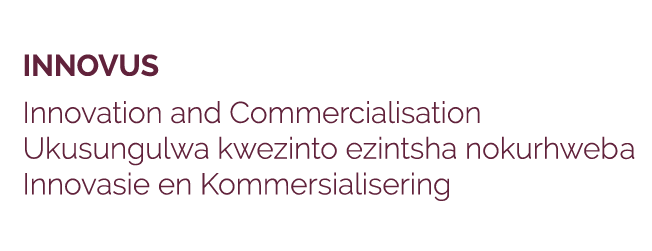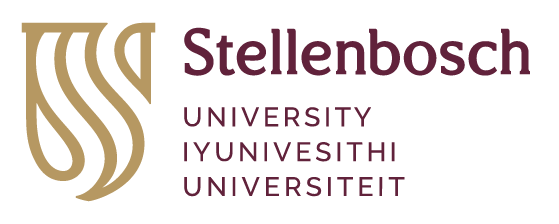This year InnovUS has exceeded all targets set for disclosures and licence transactions. At the end of November 59 disclosures have been finalised, exceeding the target of 49. Nine licence agreements were concluded with one more being finalised - exceeding the target of 7 set for the year. InnovUS also became a shareholder in three companies and raised access to R35 million in funding for one of these companies.
"We are very happy with what our team has achieved this year, but also excited by all the innovative ideas and research done by Stellenbosch University staff members. To top that, we have a growing number of SU entrepreneurs engaging with us, contradicting the myth that you need to be a university drop-out to be an entrepreneur," says Anita Nel, Chief Executive Officer.
Some of the disclosures for this year include:
A novel tuberculosis specimen collection device for diagnostic purposes to be used in young children;
A new design for a heliostat in a concentrated solar energy plant;
A natural growth promoter for plants, and
Rail Launcher.
The licences concluded in 2011 are:
The KODUS questionnaire (royalty free licence);
The solar chimney software;
A diagnostic test for plant viruses with Genetwister, a local company;
Monoclonal antibody against ovarian cancer (facilitated by the MRC Innovation Centre) in conjunction with an American company;
A licence for the manufacturing and selling of our dual rotor, air-cored generator patent with our own spin-out company, the Stellenbosch Wind Energy Technologies (SWET) Company (in return for equity);
Three of our nanofiber technologies;
Genetic modification of sugarcane that sees the UMPS gene silenced, resulting in a 75-115% increase in sucrose yield done in partnership with the South African Sugarcane Research Institute (SASRI), with a very large multinational agribusiness company, and
A licence with Oenobrands for two South African wine isolates called Oenococcusoeni S5 and Lactobacillus plantarum 56 that are combined as a mixture for use as a malolactic fermentation starter culture in the wine industry.
An international licence for Stellenbosch University Digital Elevation Model (SUDEM) has been concluded with a local company.
InnovUS has also kicked off a variety of new services and ideas during 2011. These include, among others:
The 100-hours internship programme where students gain practical experience in the field of innovation and projects;
The planned establishment of the InnovUS professional services which will be provided to researchers who are interested in consultation to the industry through the University;
The future Matie Technology Fund (MTF) where investments will be made in SU technologies;
The business incubator, a launch pad for start-up companies, and
A business idea competition during which students will be invited to pitch their business ideas to a panel of judges.
Other than all these licensing agreements, disclosures and new ideas, InnovUS still managed to deliver on their daily activities such as the expansion of the Copyright and Short Courses department, where 430 short courses were registered and approved during the 2011 academic year. A few hundred research agreements were concluded in partnership with the Division for Research Development (DRD).
InnovUS is also one of the frontrunners in the implementation of the Research Information Management System (RIMS) application from the USA-based company InfoEd Global.
"I would like to sincerely thank Prof Russel Botman and his management team as well as Prof Leopoldt van Huyssteen and the InnovUS board of directors for their continued support. And of course the InnovUS team for their remarkable commitment and dedication," says Anita.
The research done by Prof Jens Kossmann, Director of the Institute for Plant Biotechnology in the Department of Genetics, and his team will mean soon earning millions of US dollars for the sugar cane industry.
The focus of the Institute's research, which was partially funded by the South African Sugarcane Research Institute (SASRI), is twofold: Firstly, increasing the sucrose accumulation in sugar cane by means of genetic engineering and secondly, the optimisation of the biomass in sugar cane. This results in a 75-115% increase in sucrose yield.
The increase of the sucrose content in sugar cane allows for this increased yield to sugar producers. The sucrose content is increased by genetically engineering the sugar cane by means of up or down regulation of enzymes affecting carbohydrate metabolism. Optimisation of the biomass focuses on obtaining the maximum use from sugar cane. Traditionally, canes were crushed, the sucrose was extracted and two thirds of the cane were mostly burnt. The Institute for Plant Biotechnology focuses on optimising this biomass so that it can be used to produce bio fuels.
Thanks to InnovUS managing the commercialisation process of this innovation, a licence for this process was negotiated with a massive multinational agribusiness company. As part of this agreement, Prof Kossmann and his team are still collaborating with the license holder to commercialise a genetically modified (GM) sugarcane line.
And that is not where it ends. "We will, as a follow-up on the licensing agreement, enter into a research collaboration with the same global player to generate continuous additional income for our Institute and the University. In addition, we are starting negotiations with the same partner on other technologies that are emerging from our Institute and which are related to engineering crops for better productivity," says Prof Kossmann.
Future research of the Institute for Plant Biotechnology focuses on making plants more productive with less input. By genetically engineering the plants, the required inputs (like water, pesticide and fertiliser) can be reduced and an increasingly resilient and maintenance-free plant can be created.
InnovUS was the first to successfully implement the electronic technology transfer module of a major research and management information system.
The Research Information Management System (RIMS) comprises a consortium of South African higher education institutions and science councils, all working in collaboration to enhance their research management capabilities. A licence for the system was procured from USA-based InfoEd Global, an information management system focusing on the sharing, transfer and archiving of research information. Specialised software modules within the system feature intelligent forms and automated processes that aim to save time and effort.
The Technology Transfer module is the first to be piloted in South Africa and is based entirely on InnovUS processes. During the past two years InnovUS has completed eight of the 11 submodules within the Technology Transfer module. Seven of these modules are currently in production and the eighth was approved by the research consortium in October 2011. It is expected to be in use at InnovUS shortly. "In addition to the development of these modules, InnovUS has also assisted other institutions within the consortium by advising them on business processes and the development of a technology transfer system," says Doris Peters, Intellectual Property and Financial Assistant at InnovUS.
InnovUS uses the RIMS/InfoEd system to manage technology transfer processes at each stage of the transfer journey: from the disclosure of a new technology (the Disclosure module) to the evaluation thereof (Cases module) and the drawing up of required contracts and agreements (Agreements module), to name just a few. An exciting development for 2012 is the launch of an electronic disclosure form by InnovUS within the Technology Transfer module. The e-form will allow the entire disclosure process, including approval from heads of departments and Deans of the relevant faculties, to occur electronically. "This will speed up the disclosure phase considerably and allow for the existence of a paperless office environment within InnovUS," adds Doris.
The RIMS/InfoEd system has many other advantages for InnovUS, most notably the fact that it is web-based and can therefore be accessed from anywhere in the world, allowing InnovUS staff to work on projects or browse contracts, regardless of their location. In addition, the system facilitates the capture of all relevant data and documents relating to projects on a central system. "This allows researchers and inventors to track the progress of their technologies at all times, and also enables InnovUS staff members to extract automatically generated reports on projects at any given time," explains Doris.
In addition to the close involvement of InnovUS with the Technology Transfer module of RIMS/InfoEd, Stellenbosch University has also helped to pilot a number of other modules through the efforts of the Division for Research Development (DRD). The DRD has advised on modules relating to environmental safety, clinical trials, funding opportunities and expertise management, among others.
Innovus, Stellenbosch University
|
15 De Beer Street
Stellenbosch
7600
South Africa
|
PO Box 3135
Matieland
7602
South Africa
|
|
t +27 (0) 21 808 3826
e info@innovus.co.za
e forms@sun.ac.za |

